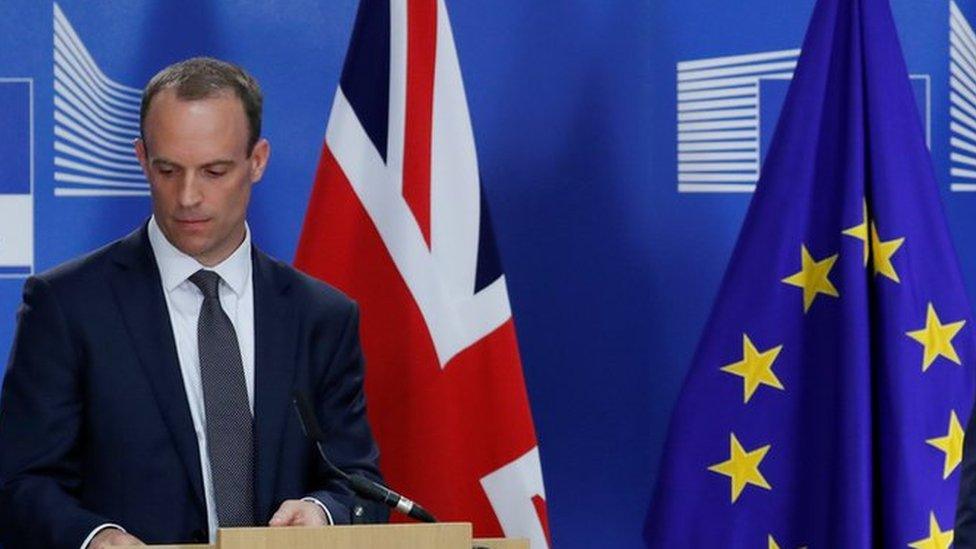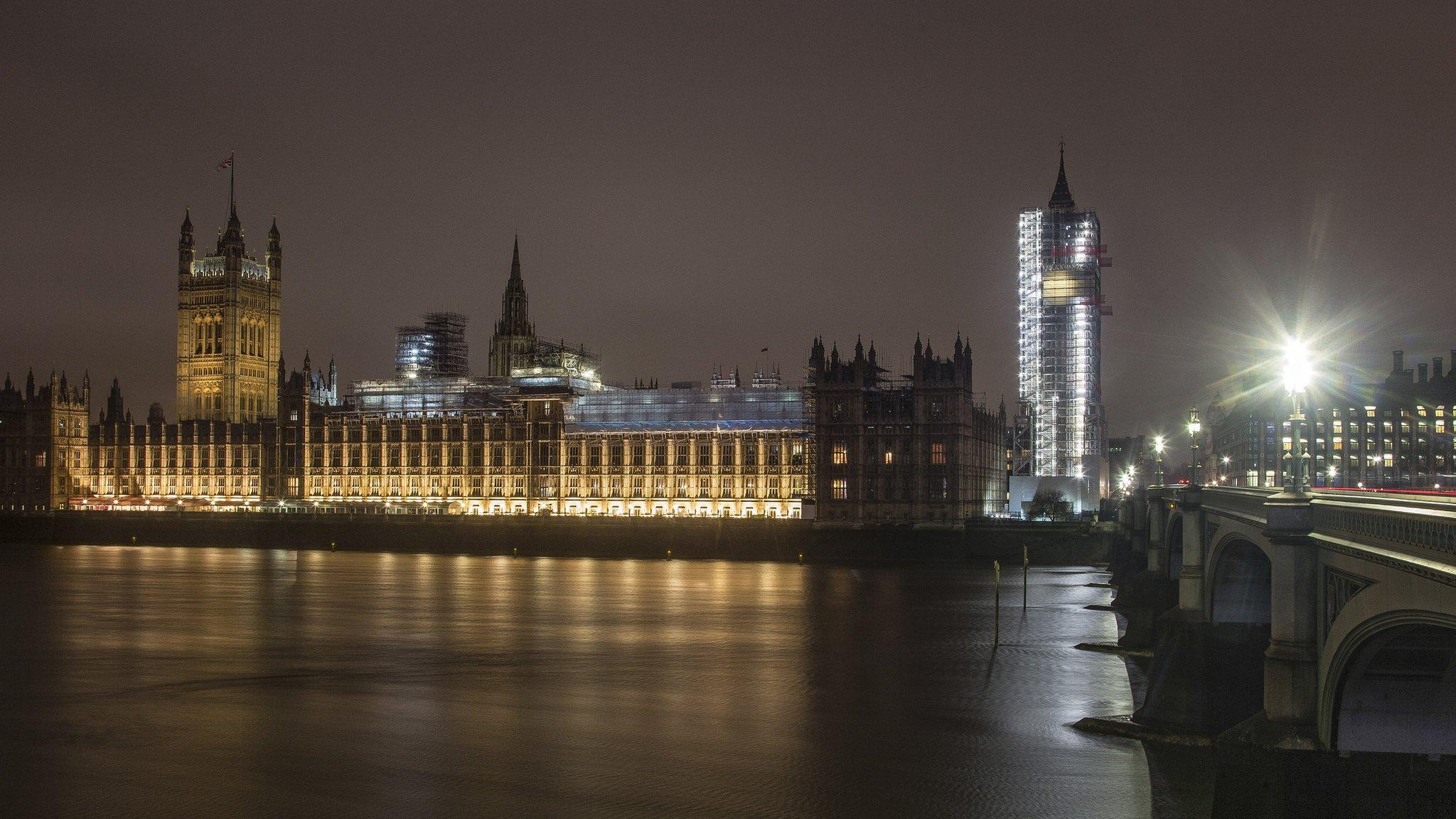Brexit: NHS managers warn about impact of no deal
- Published
- comments

The group representing hospitals and ambulance services in England has warned of a lack of "contingency planning" to deal with the impact of a no-deal Brexit on the health service.
In a leaked email to NHS England boss Simon Stevens, NHS Providers says leaving the EU without agreement would immediately be a real risk to services.
The group warns it would make it harder to stop the spread of diseases.
NHS England said preparing for every possible Brexit outcome was a priority.
The Department of Health said it was confident of reaching a Brexit deal that benefits the NHS but was preparing for "the unlikely event of no-deal", to prevent disruption to patients.
It comes as Brexit Secretary Dominic Raab holds the latest round of negotiations with his EU counterpart Michel Barnier.
The UK is set to leave the EU on 29 March 2019 and the two sides are currently negotiating the terms of its exit and its future relations in a whole range of issues.
'Stockpiles and shortages'
NHS Providers - which represents acute, ambulance, community and mental health services within the health service - has expressed concern about what it says is a lack of engagement with ministers in the email, seen by the BBC.
It has called for NHS England and NHS Improvement - which oversees NHS trusts and providers - to convene a group of trust leaders as a matter of urgency.
In an email sent to NHS chief executive Simon Stevens, also copied in to Mr Raab and Health Secretary Matt Hancock, it calls for a co-ordinated response to confront the challenges that would be presented by a no deal.
Chief executive of NHS Providers Chris Hopson writes that there has been "no formal communication" to trusts from either NHS England or NHS Improvement on this issue.
Without national planning and coordination "there could be both stockpiles and shortages of medicines and medical devices", Mr Hopson says.
He adds that "disease control coordination could also suffer".
Mark Dayan, policy analyst at the Nuffield Trust, said "a large degree of chaos" was "implicit" in a no-deal Brexit and, without a transitional agreement with the EU, it was difficult to predict the impact on supply of medicines.
"There's obviously been talk of stockpiling. There's been talk in some cases of chartered flights to bring over supplies that maybe don't have such a long shelf-life. And although that's drastic action, it's probably quite justified," he told BBC Radio 4's Today programme.
An NHS England spokeswoman said the health service was working with government, planning for different post-Brexit scenarios.
"We will be working with our colleagues and partners across the NHS to ensure plans are well progressed, and will provide the NHS with the support it needs," she said.
'Common sense approach'
Labour MP Ben Bradshaw, who supports the People's Vote campaign for a referendum on the final Brexit deal, said the NHS letter was a "stark and urgent warning of the impact of a hard Brexit or no deal and of non-existent planning".
Another supporter of the campaign, Tory MP Sarah Wollaston, said another referendum would be like seeking "informed consent" from a patient before a major operation.
A series of technical notices - including advice for businesses, citizens and public bodies about a no-deal scenario - will be made public over the next month or so.
Downing Street has described the advice due on Thursday as "sensible, proportionate, and part of a common sense approach to ensure stability, whatever the outcome of talks".
On the same day, Mr Raab will make a speech in Westminster to outline the government's plans for the possibility of leaving the EU without a deal.
The UK is seeking "associate membership" of the European Medicines Agency, which evaluates and supervises medicines and helps national authorities authorise the sale of drugs across the EU's single market.
- Published19 August 2018

- Published11 September 2018

- Published1 July 2018
